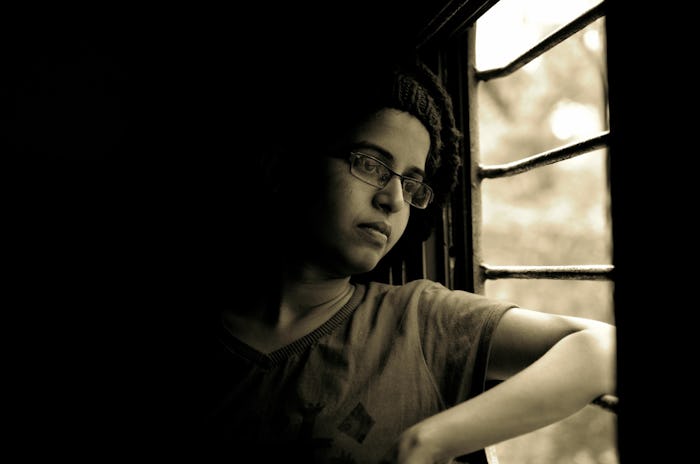If you're a mom, you know that sometimes your children get nervous. Sometimes, they're hesitant to try something new, make new friends, or participate in something new. Sometimes, you find out that your kid just downright doesn't like doing this thing, or that thing, or another thing. It can be hard to keep track of what makes your child anxious or nervous. But if your child perpetually experiences what appear to be nerves about certain situations, you're probably wondering, can kids have anxiety?
According to the Anxiety and Depression Association of America (ADAA), children can experience multiple forms of anxiety. From social anxiety to separation anxiety, children are just as susceptible to anxiety as adults are.
Anxiety can be useful in some situations. It helps children assess the level of danger in activities, and can help prevent them from poor decision making. However, it's important to note that even though anxiety is a natural human reaction, Kids Health noted that there is a large difference between normal anxiety, and having an anxiety disorder. If your child seems to be especially hard on themselves, striving for perfection, and seeking constant approval, the ADAA suggested that your child may be living with a Generalized Anxiety Disorder (GAD). With a GAD, everyday worries can feel like a burden, and can often make seemingly simple situations spiral out of control.
Additionally, the Anxiety British Columbia (Anxiety BC) noted that most anxiety disorders have symptoms that can be grouped into four different categories. In each type of anxiety disorder, your child will exhibit physical responses, thoughts, emotions, and behaviors that will help you signify what type of anxiety your child is experiencing, and help you to recognize recurring patterns in your child's anxiety. Anxiety BC went on to state that "when a child experiences anxiety more often (e.g. most days, and for months at a time), and more intensely than other children of the same age, it is more likely that the child has an anxiety disorder."
One of the most telling signs of an anxiety disorder can be disruptions in your child's day to day routine. If your child is experiencing disruptions that causes interruptions or the complete halt of otherwise normal activities such as attending school, joining clubs, or meeting age-expected demands (i.e. doing their homework, making friends, sleeping through the night), then your child is most likely living with an anxiety disorder.
According to Harold S. Koplewicz, founder and director of the New York University Child Study Center, anxiety disorders are not simply childhood worry that your kid will grow out of. "Hoping it is a phase, hoping the child will grow out of it, is a very big mistake," Koplewicz told WebMD. "All these disorders cause distress and dysfunction." Because anxiety disorders are not something that simply go away on their own, addressing it sooner than later will help both you and your child in the long run. If you think your child may be coping with an anxiety disorder, consult your child's doctor for further information on how you and your child can learn and implement the best practices for your child's anxiety.
